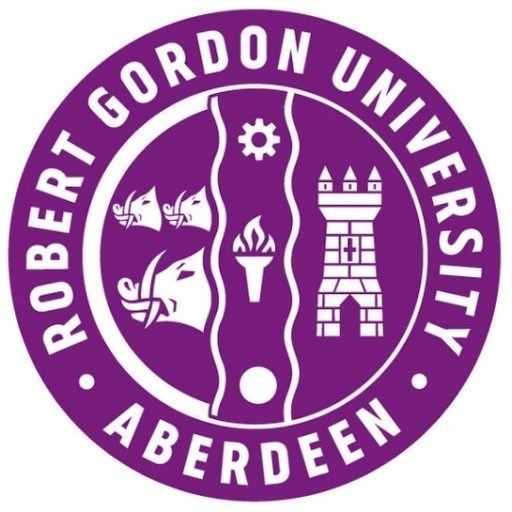Photos of university / #uniofnottingham
The Bachelor of Science (BSc) in Food Production Management at the University of Nottingham is a comprehensive degree programme designed to equip students with the essential skills and knowledge needed for a successful career in the modern food industry. This programme combines the scientific principles of food production with practical management skills, preparing graduates to meet the complex challenges faced by food manufacturers and suppliers today. Throughout the course, students explore a wide range of topics including food processing technology, quality assurance, food safety, supply chain management, and sustainable production practices. The curriculum integrates theoretical learning with hands-on experience, often involving laboratory sessions, industry visits, and real-world projects that enable students to apply their knowledge in practical settings. The University of Nottingham boasts state-of-the-art facilities, including dedicated food science laboratories and pilot plant laboratories that simulate industrial environments, facilitating experiential learning. Additionally, the programme offers opportunities for work placements within the food industry, providing valuable industry contacts and insights into operational practices. Emphasizing innovation and sustainability, the degree programme also covers trends such as organic production, ethical sourcing, and environmentally friendly manufacturing processes. Graduates from this programme are well-prepared to pursue careers in food production management, quality assurance, product development, and supply chain logistics within the food sector. They also possess a solid foundation for further postgraduate study or entrepreneurial ventures in the food industry. With a curriculum developed in collaboration with industry stakeholders, the programme ensures that students are equipped with up-to-date knowledge and skills aligned with current industry standards and future developments. The University of Nottingham’s strong emphasis on research and innovation further enriches the learning experience, allowing students to engage with cutting-edge projects and advancements in food science and management. Overall, the Food Production Management programme is an ideal choice for individuals passionate about food technology, production processes, and sustainable industry practices, looking to make a meaningful impact in the global food sector.
The Food Production Management programme at the University of Nottingham offers students a comprehensive and practical education in the essential aspects of food manufacturing, processing, and production. Designed to equip graduates with the skills required to excel in the dynamic food industry, this course combines core principles of food science, engineering, technology, and business management, providing a well-rounded understanding of food production systems. Throughout the programme, students will explore topics such as food safety and quality assurance, processing technologies, supply chain management, sustainability, and innovation in food production. The curriculum emphasizes both theoretical knowledge and practical skills, with laboratory sessions, industry placements, and project work enabling students to apply learning in real-world contexts. Graduates will be prepared for careers in food manufacturing companies, quality assurance agencies, regulatory bodies, and consultancy firms, where they can contribute to improving efficiency, safety, and sustainability of food production processes. The programme also fosters critical thinking, problem-solving, and teamwork abilities, ensuring students are ready to meet current challenges and adapt to future developments in the food industry. With access to state-of-the-art laboratories and close links with industry partners, students gain valuable experience and networking opportunities. The University of Nottingham's Food Production Management programme aims to develop industry-ready professionals who can play a vital role in ensuring the safety, quality, and sustainability of food products worldwide.
In order to enroll in the Food Production Management program at the University of Nottingham, prospective students are generally required to meet certain academic and language prerequisites. Candidates typically need to have completed secondary education with strong academic results, often including passes in relevant subjects such as sciences or business-related courses. For international students, proof of proficiency in English is necessary, usually evidenced by scores from standardized tests such as IELTS, with a minimum overall band score of 6.0 to 6.5, including no less than 5.5 to 6.0 in individual components. Additionally, applicants are expected to demonstrate an interest or prior experience in food production, management, or related fields, which could be shown through relevant work experience, extracurricular activities, or related academic coursework.
The program may also consider mature students or those with professional experience in the food industry, assessing their potential and motivation through interviews or personal statements. Accreditation and compliance with university admission standards are essential; therefore, candidates must submit official transcripts, proof of identity, and, where applicable, references or letters of recommendation. The university may also specify application deadlines, typically aligned with the UCAS timeline for undergraduate courses in the UK.
Applicants should prepare a personal statement outlining their interest in food production management, their career goals, and how the program aligns with their aspirations. For students from non-native English-speaking countries, official translation and verification of documents are required. Entry requirements can vary slightly year to year, so it is advisable to consult the official University of Nottingham admissions website for the most current information. The university values diversity and aims to admit students with a range of backgrounds who demonstrate motivation, analytical skills, and a commitment to developing sustainable practices in food production.
The Food Production Management program at the University of Nottingham offers a range of financing options to support students throughout their studies. Tuition fees for domestic and international students vary depending on the level of study and residency status. For undergraduate students, the annual tuition fee for UK and EU students is approximately £9,250, while international students pay around £24,000 per year. Postgraduate taught programs have tuition fees ranging from £12,000 to £20,000 for UK students and between £20,000 and £25,000 for international students, depending on the specific course and its duration.
The university provides a variety of scholarships and bursaries to eligible students, including the Nottingham Developing Solutions Scholarships, which are aimed at students from developing countries, and subject-specific awards that can reduce tuition costs significantly. Additionally, students are encouraged to explore government student loan options available through the UK Student Loans Company, which can cover tuition fees and provide maintenance loans for living expenses. International students may also seek financial support from their home governments or undertake external scholarship programs, some of which are supported by international organizations or private foundations.
The university offers flexible payment plans, allowing students to pay tuition fees in instalments rather than a lump sum, easing financial burdens. Part-time work opportunities on campus, such as research assistantships or student ambassador roles, are also available to help students supplement their income. Furthermore, students are advised to research sponsorship or employer-supported tuition reimbursement programs if they are employed full-time or part-time in relevant industries.
Students are encouraged to plan their finances carefully and consult the university's financial aid advisors to identify the most suitable funding options for their circumstances. The university also provides guidance on applying for external funding and scholarships to maximize financial support. Overall, the combination of university scholarships, government and external loans, part-time work opportunities, and personal savings enables students enrolled in the Food Production Management program to pursue their education effectively while managing their financial commitments.
The Food Production Management program at the University of Nottingham is designed to prepare students for a successful career in the food industry by providing comprehensive knowledge and practical skills in the management of food manufacturing processes. The course covers a wide range of topics, including food science, process engineering, quality assurance, food safety, sustainability, supply chain management, and business strategies. Students will develop an understanding of the entire food production system, from raw material sourcing to product distribution, with an emphasis on innovative techniques and technological advancements that enhance efficiency and product quality.
Throughout the programme, students participate in both theoretical coursework and practical laboratory sessions, along with industrial placements that allow them to gain real-world experience and build professional networks. The curriculum is designed to foster critical thinking, problem-solving abilities, and leadership skills, preparing graduates to take on managerial roles in food manufacturing companies, consultancy, or related sectors. The university's strong links with industry partners provide opportunities for collaborative projects, internships, and employment after graduation.
The program is delivered by experienced academics and industry experts who bring current industry practices into the classroom. Students benefit from state-of-the-art facilities, including dedicated food science laboratories and pilot plant facilities that simulate real production environments. The University of Nottingham also emphasizes sustainability and responsible production practices, training students to develop innovative solutions that reduce environmental impact and improve the sustainability of food systems.
Graduates of the Food Production Management program are equipped with a versatile skill set applicable across various sectors of the food industry, including dairy, bakery, beverages, processed foods, and ingredient production. They are prepared to work in managerial roles, quality assurance, research and development, and consultancy positions. The program's combination of academic theory, practical skills, and industry engagement ensures graduates are well-positioned for employment in a global market, capable of contributing to the advancement and sustainability of the food production industry.









